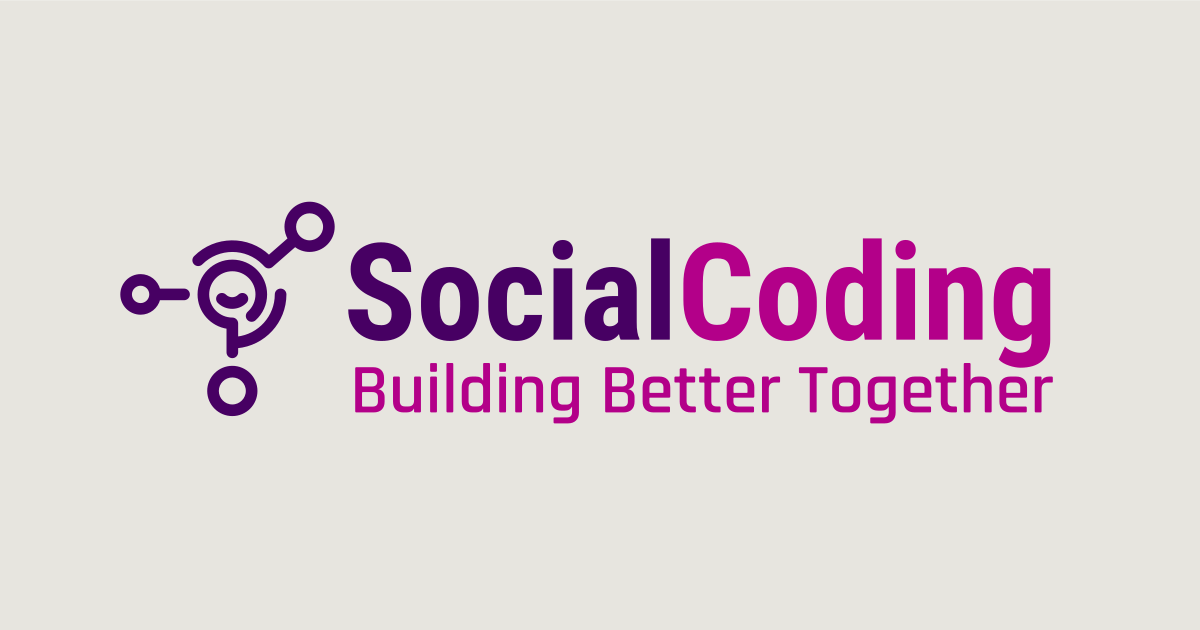Someone starts a new #FOSS project as a hobby activity.
-
Billy Smithreplied to smallcircles (Humanity Now 🕊) last edited by
If outsiders don't like the way that thinngs are done, then they can fork the project, and build it for themselves.
It's a hobby project first and foremost.
If the outsiders have expectations, then that's the outsider's problems to deal with, not the hobbiest.
We are choosing to share our work.
If someone doesn't like the flavour of the recipe, they are welcome to go create their own meal.

-
smallcircles (Humanity Now 🕊)replied to abekonge last edited by
@abekonge exactly.
An analogy, maybe. Say I live in a small communal group where we do collective gardening. My hobby is to chop wood, with the precious axe my late father gave me.
So, I joyously chop wood for myself.. and also for my neighbors. A kind gesture.
Then neighbors come:
"We need more wood"
"I want thinner splices"
"There should be a rack for people's orders"
"I need a truckload for my friends"And then:
"This jerk gatekeeps his wood"
"Yea, suck big time."
"This guy is a BDFL!" -
unexpectedteapotreplied to smallcircles (Humanity Now 🕊) last edited by
Building social software *for the masses* as a BDFL is fundamentally anti-social.
-
smallcircles (Humanity Now 🕊)replied to Billy Smith last edited by
Yes, I agree this is one interpretation and it seems quite reasonable. Yet in practice the social dynamics work differently, such that in 2 years you might burn out because of all the negative sentiments and expectations placed on you.
-
Laxystemreplied to smallcircles (Humanity Now 🕊) last edited by
@smallcircles @mir Mastodon is an exception, as it is run by a foundation, meaning it is no longer a hobby project: it gets tax cuts as it is serving the general public. And as such, it has a commitment to the public it has to fulfill.
Foundation projects cannot be managed as hobby ones.
-
Billy Smithreplied to smallcircles (Humanity Now 🕊) last edited by
Who pays attention to that?
As a creator, if people don't like the way that my work is done, then they are free to go build it for themselves, same as i did.

-
smallcircles (Humanity Now 🕊)replied to Laxystem last edited by
Yes. Maybe one might say that with that decision the project has entered yet another stage. Now they are a non-profit with a (more or less implicit) BDFL governance model. That is still a valid model, and plenty non-profits work in similar manner. If at least the work is done in alignment to the mission. But that can be anything.
So when was the (also implict) moral and ethical burden of responsibilities taken on?
(Not asking, just pondering)
-
Ticktokreplied to smallcircles (Humanity Now 🕊) last edited by
@smallcircles I feel like this falls in the art/music/writing category of, "once you put it out in the world, you no long own it and people are free to do with it as they wish, but they also have no authority over you to demand you make what they want"
Glad people like it, and they're free to fork it or submit pull requests, but, unless otherwise stated, the creator is beholden to no one, even if they were serous for a while, even if they accepted donations, there is only a social contract -
Laxystemreplied to smallcircles (Humanity Now 🕊) last edited by
@smallcircles @mir non-profits with BDFL structures without voting out mechanisms are not ethically just imo.
You need, at the very least, to have a Council of Entrustees.
-
The Nexus of Privacyreplied to smallcircles (Humanity Now 🕊) last edited by
@smallcircles It depends a lot on circumstances. if the person running the project describes themselves as BDFL, then of course it's accurate to describe them that way. If not, but volunteers on the project see them are acting in a dictatorial way and are demanding something different, then it'sc legitimate but I'd want to know more about the circumsnaces before saying whether or not I agree with the characterization.
Even "hobby projects" can have BDFL's. And whether or not it's a hobby project, whoever's running it can run it however they want -- it's their project! And many people think that BDFL-style organization can work better for certain kinds of projects (as long as the BDFL's making good decisions of course). But if whoever's leading the project wants to have community involvement, and the community's complaining about decision-making, it's a problem no matter what term gets used.
-
smallcircles (Humanity Now 🕊)replied to Ticktok last edited by
@ticktok yes I agree. Yet in practice you get to deal with negative effects I sketched. How to mitigate that?
Two thoughts just come to mind:
#CodeOfConduct should include a section on Expectation wrt the project.
#StatementOfCommitment might be a document where all the ones who have ownership of (parts of) the project state the responsibilities they take onto themself.
With those 2 documents people can clearly see where the balance is between "hobby" and "formal" governance models.
-
Alexandre Dulaunoyreplied to smallcircles (Humanity Now 🕊) last edited by
@smallcircles It’s easy. If they don’t like how it’s done or managed, fork it and make the hard work. But the majority is usually complaining without having the willingness to do and maintain an open source/project. It’s a doOcracy nothing more https://communitywiki.org/wiki/DoOcracy @laxla
-
Janne Morenreplied to smallcircles (Humanity Now 🕊) last edited by
@smallcircles @abekonge
At which point the wood-craving masses are free to start chopping wood for themselves.If you set clear expectations of a communal software project then you are remiss if you don't. You effectively promised a form of shared governance, and reneged on that promise after people already invested time and effort.
But if you did not - and especially if you make it clear it's a personal hobby - then they can fork if they want, but they have little cause for complaints.
-
m0xEEreplied to smallcircles (Humanity Now 🕊) last edited by
@smallcircles @pixelcode
Is it such a common term these days? I'm of course familiar with it, but in abbreviated form it still confused me, I even had to look it up
-
abekongereplied to smallcircles (Humanity Now 🕊) last edited by
@smallcircles good analogy. What if you are the only one that can handle that axe and supply wood to your neighborhood. Maybe there is a wood shop where they can buy it, but the shop clear-cut old
growth forest and are expensive and abusive.Then you start cutting pieces that are too big for your neighbors ovens? You neighbors complain - but you insist on doing it your way. Now you neighbors call you BDFL.
Another scenario - you form a cutting group that the neighbors can join , the neighbors who can’t handle the axe join the cutting group - helps carrying the wood and make tea for you. The group decides to cut pieces that fits everyone’s ovens. You actually work less now.

-
smallcircles (Humanity Now 🕊)replied to Alexandre Dulaunoy last edited by
Indeed.
I intent to maybe write something about insights I gleaned [1] from this thread, on the #SocialCoding movement's forum.
This is a #DoOcracy too, where in heading I gave it the simplest possible definition: "Pick up any task, and steer it to completion".

Discuss Social Coding
Build better together and create solutions that people love

Discuss Social Coding (discuss.coding.social)
[1] See: https://social.coop/@smallcircles/113508224930993093
-
Billy Smithreplied to smallcircles (Humanity Now 🕊) last edited by
This was a pattern that we found taking place at our local hackspace:

Geeks, MOPs, and sociopaths in subculture evolution | Meaningness
How muggles and sociopaths invade and undermine creative subcultures; and how to stop them.
Meaningness (meaningness.com)
It's the sense of entitlement that causes the problems.
If people are willing to share the effort, then we can all build things more effectively.
-
Peter Toft Jølvingreplied to smallcircles (Humanity Now 🕊) last edited by
@smallcircles there's a dimension about money and one about power somewhere in there.
As soon as you take money, expectations change to whatever purpose you took the money for. Probably not just "me having a good time".
And power: if you "control" the social media experience of many people that can't easily change provider, that changes things, where both "control" and "easily" are sliding scales. -
smallcircles (Humanity Now 🕊)replied to The Nexus of Privacy last edited by
@thenexusofprivacy Yes! I agree with these points.
And yet there's too much leeway or wriggle room in the definition of BDFL, and that in practice BDFL is more of a vaguely defined social-cultural stereotype to label people with. Rather than something that is well understood and can be properly dealt with.
Somewhere along the lifecycle of a #FOSS project the social dynamics change, and maintainers should cope with that.
Maybe I'll write out some thoughts. Had an idea: https://social.coop/@smallcircles/113508224930993093
-
smallcircles (Humanity Now 🕊)replied to m0xEE last edited by
Not so much a common term but a common model that people use in practice for their #FOSS project. Without realizing it often, they get into this #BDFL "zone" and then have to deal with the consequences.
There's a lifecycle for FOSS projects, that encompasses more than coding and CI.
At Social Coding movement I defined a term for this: The Free Software Development Lifecycle (FSDL) that takes this explicitly into account.

Social Coding FSDL
Free Software Development Lifecycle for inclusive culture, healthy ecosystems and open technology.

Discuss Social Coding (discuss.coding.social)
